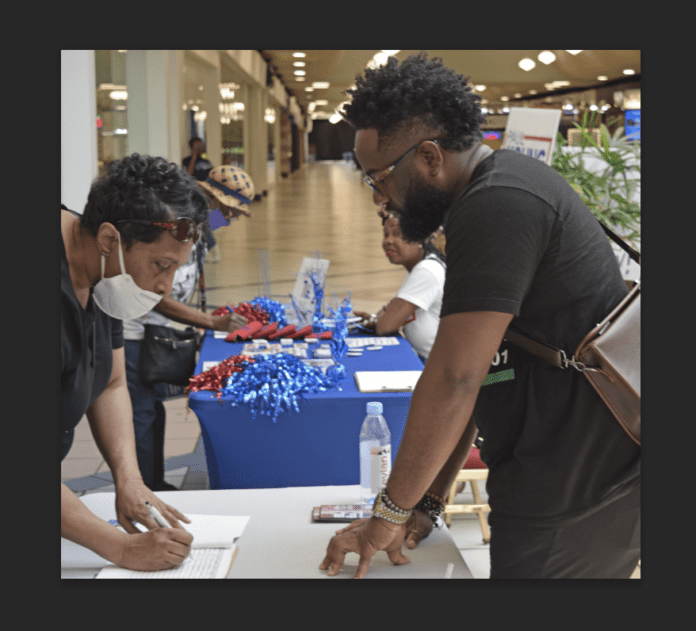With four months to go before voters cast ballots for the next mayor of Memphis, the fifth in a series of Memphis People’s Convention Meet & Greet opportunities unfolded at the Southland Mall in Whitehaven on Saturday.
“I think voters need to understand that this is a pivotal election for several reasons no matter where they are on the political spectrum,” said Sijuwola Crawford of #UPTheVote901, which spearheads the neighborhood meet-greet sessions.
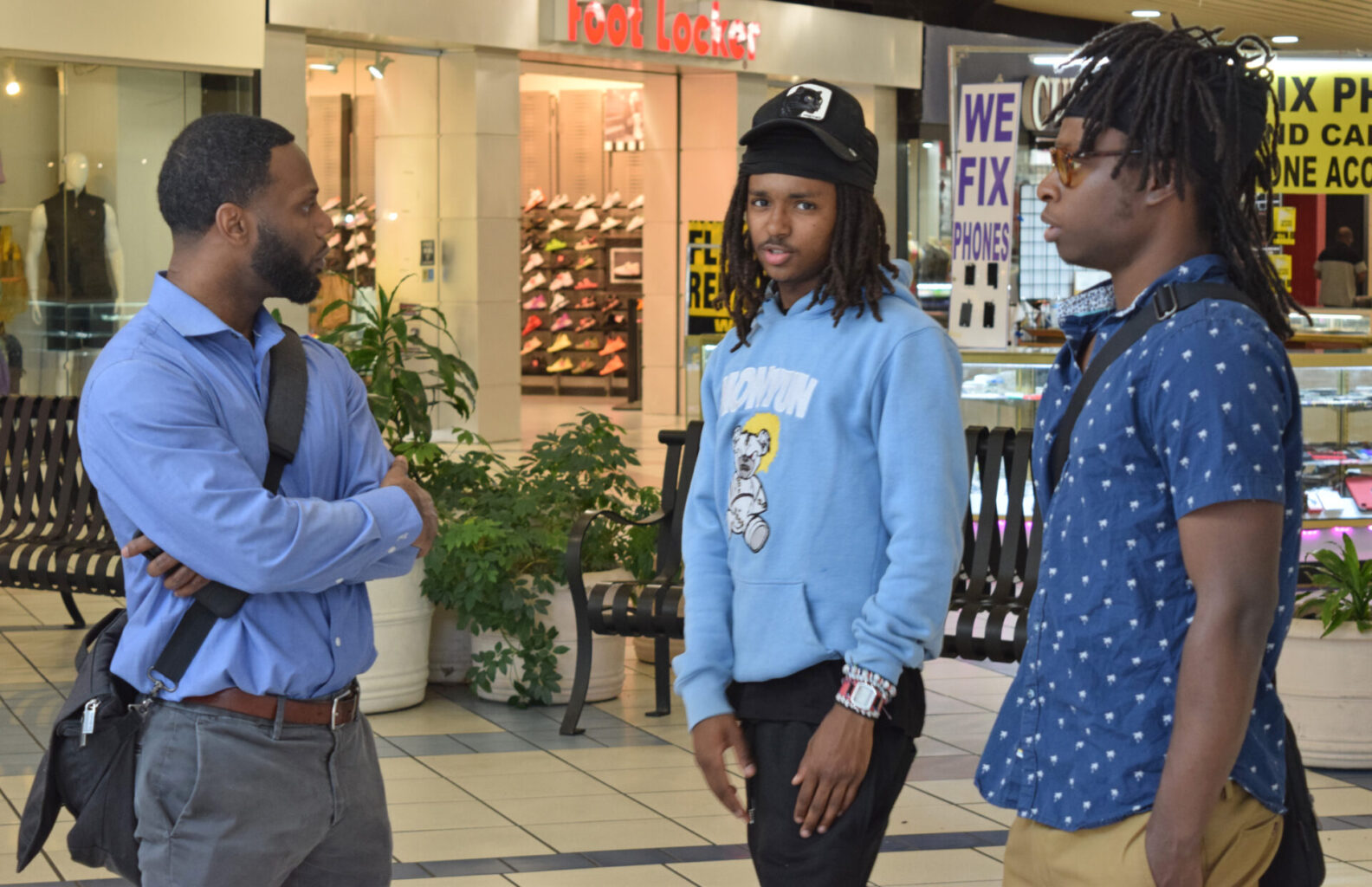
“In terms of the importance of this event, a lot still – as I talk to people who could potentially vote – feel very unequipped to make the decision,” he said. “They feel like politics is something that is far from them …. An event like this gives them an opportunity to see their candidates in one place talking about issues that they care about and try to make a decision about who will be most impactful on those issues.
The Rev. Dr. Earle J. Fisher, founder of #UPTheVote901, set the context for the forum, noting the four previous sessions in South Memphis, Orange Mound, North Memphis and Midtown. The format called for the candidates to focus three-minute marks on crime and safety.
“We understand the Southland Mall to be a place that exemplifies what happens when communities are disinvested in,” said Fisher. “We also know there is a connection between poverty and crime and the Southland Mall has been the sight of some very notable criminal activities.”
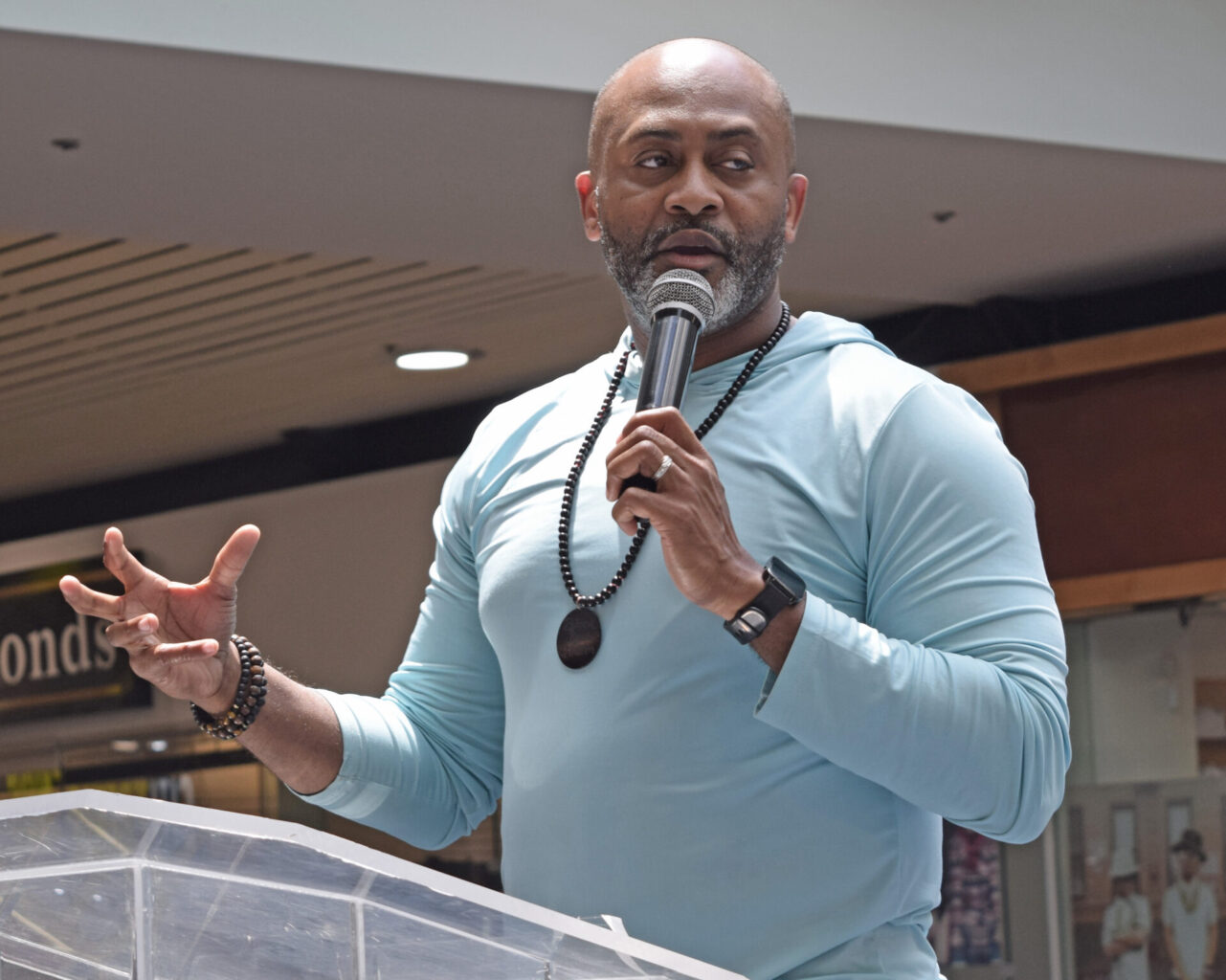
He encouraged those in attendance to engage the candidates in issues beyond the designated topic after listening to the opening remarks.
Four mayoral candidates were present: Judge Joe Brown, State Rep. Karen Camper, House Minority Leader; Downtown Memphis Commission President Paul Young, and Memphis NAACP President Van Turner Jr. Each had attended at least one of the previous forums.
Fisher designated the order for the candidate remarks.
“In looking at Memphis and where we can go, what our future can be, we’ve got to be able to deal with the criminal element, the criminalization in our community, to move us forward,” said Camper, adding that requires “evaluating the entire system.”
“What I see is a system that is working very hard in all of its silos. We have the police, they are doing a great job. We have fire, they are doing a great job. We have the nonprofits, churches, everybody. But the entire ecosystem needs to be evaluated to put together what I call a … long-term strategic plan.”
Everyone needs to support and buy into the plan, said Camper.
“Right now, Memphis does not have a strategic plan for law enforcement, for reducing crime. If we take a look at the entire system, the judicial system, juvenile court, non-profits, even the Crime Commission, we all have to come together. On day one I will put together a team that will look at the entire ecosystem and develop a long-term strategic plan.
“Once you are involved in the plan, and the community will be involved, you will fight for the plan.”
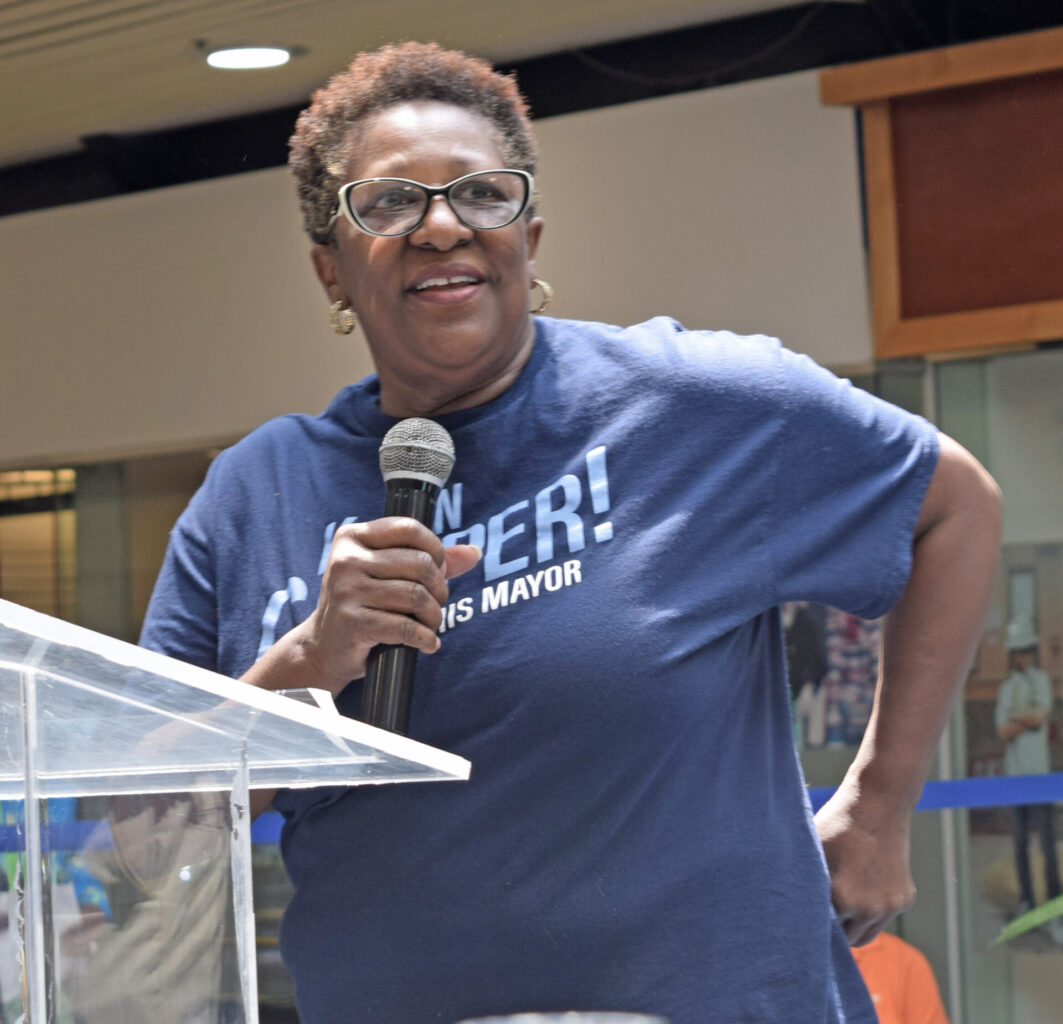
Camper said she also had some “concepts and ideas” to help engage youth “so we can shut the pipeline off of this criminality that is going on.”
Turner said addressing crime means addressing the underlining causes: “it’s poverty, it’s hopelessness, it’s lack of vision, it’s lack of options. We can’t address it top down. We have to address it bottom up.”
Turner outlined what he said bottom-up involved, beginning with public transportation.
“Our bussing system is still based on taking domestic workers out east to clean homes and cook for white folks; and then taking them back to South Memphis and North Memphis. …We have to make it modern. We have to make sure that when people get jobs and opportunities they can get to and from work in a timely fashion.”
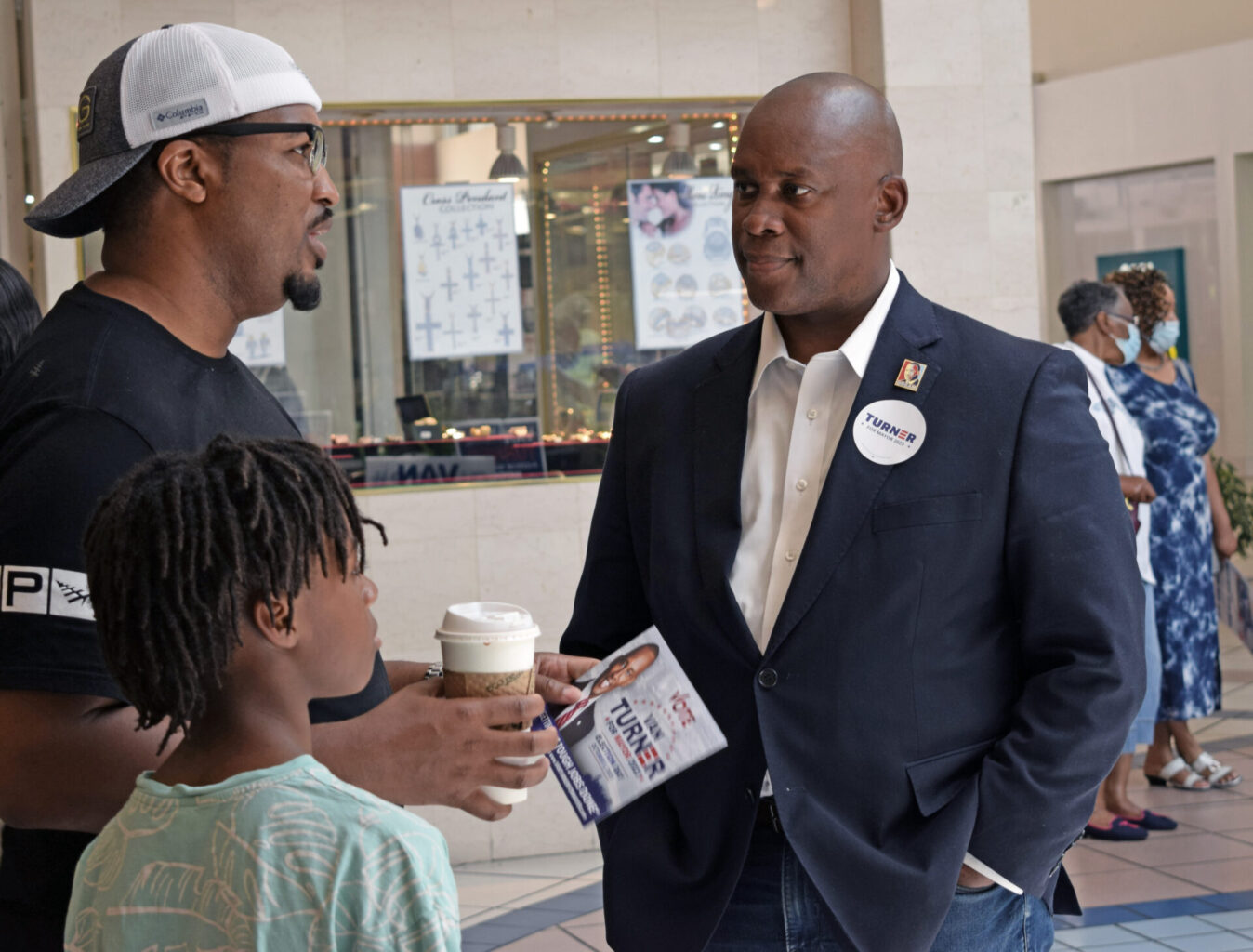
Bottom-up, he said, also involves a different level of involvement in K thru 12 education.
“We cannot complain about lack of opportunities in our community, lack of hope in our community when we are not pouring into the very institutions that contain the greatest crime-fighting apparatus that we have – a quality and equitable education system. The city has to get back involved in K thru 12 education”
Once those nuts and bolts are addressed, crime can be addressed in a comprehensive way, Turner concluded.
Brown, whose headquarters is in Southland Mall, said he was the only one in the mayoral race who had dealt with crime “on a constructive basis,” citing a drop in the rate of returned felons to his courtroom.
“How did I do that? It’s hands-on,” said Brown. “You go out and get up close and personal with the people you need to deal with. If you are going to be the mayor, you’ve got to be the mayor for everybody. … While everybody around me that is running for this race has been going for the money, I’ve been going for the people.”
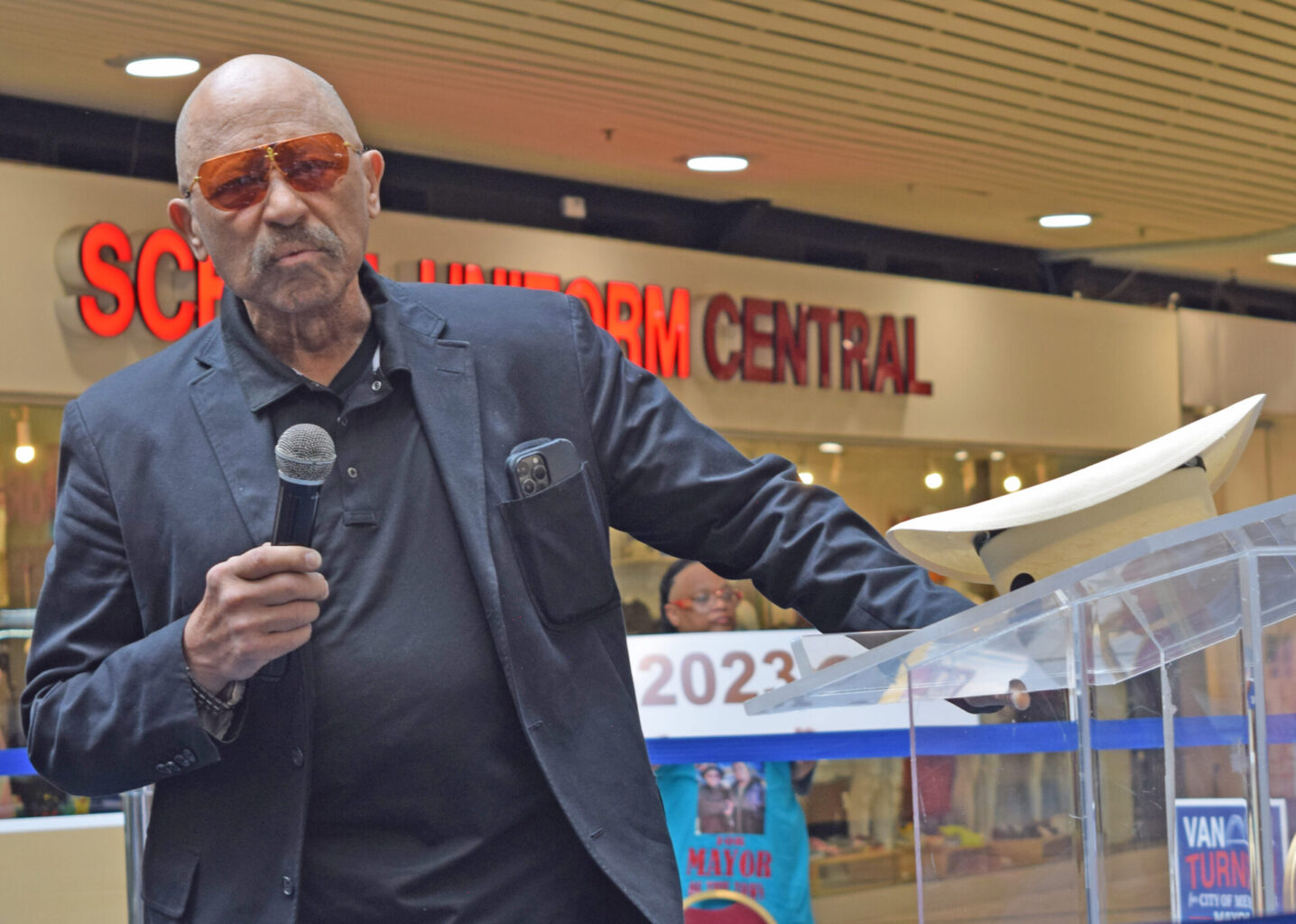
Brown said had been meeting with “the thugs, the so-called riffraff, the hoodrats, the gangsters and everybody else … brokering a deal to make this town peaceful. Because even they don’t like getting shot down on such regular basis.”
Most of the people in senior law enforcement are familiar to him, Brown said, “because I helped raise them as children. They were clients’ sons and daughters and things like that and we have a plan that we are going to put in place. I’ve done it. I don’t need to set up a program. I know what needs to happen. It will happen.”
Young said the number one question from people he has met on the campaign trail is, “‘What are we going to do about crime?’ My message is consistent no matter where I am.
“It’s a twofold approach: accountability – those out doing wrong in our community, my job as mayor is to make sure we hold them accountable. That we get them off the streets; that we do the things it takes to make sure they are brought to justice, and hopefully they go into a criminal justice system that is focused on reform.”
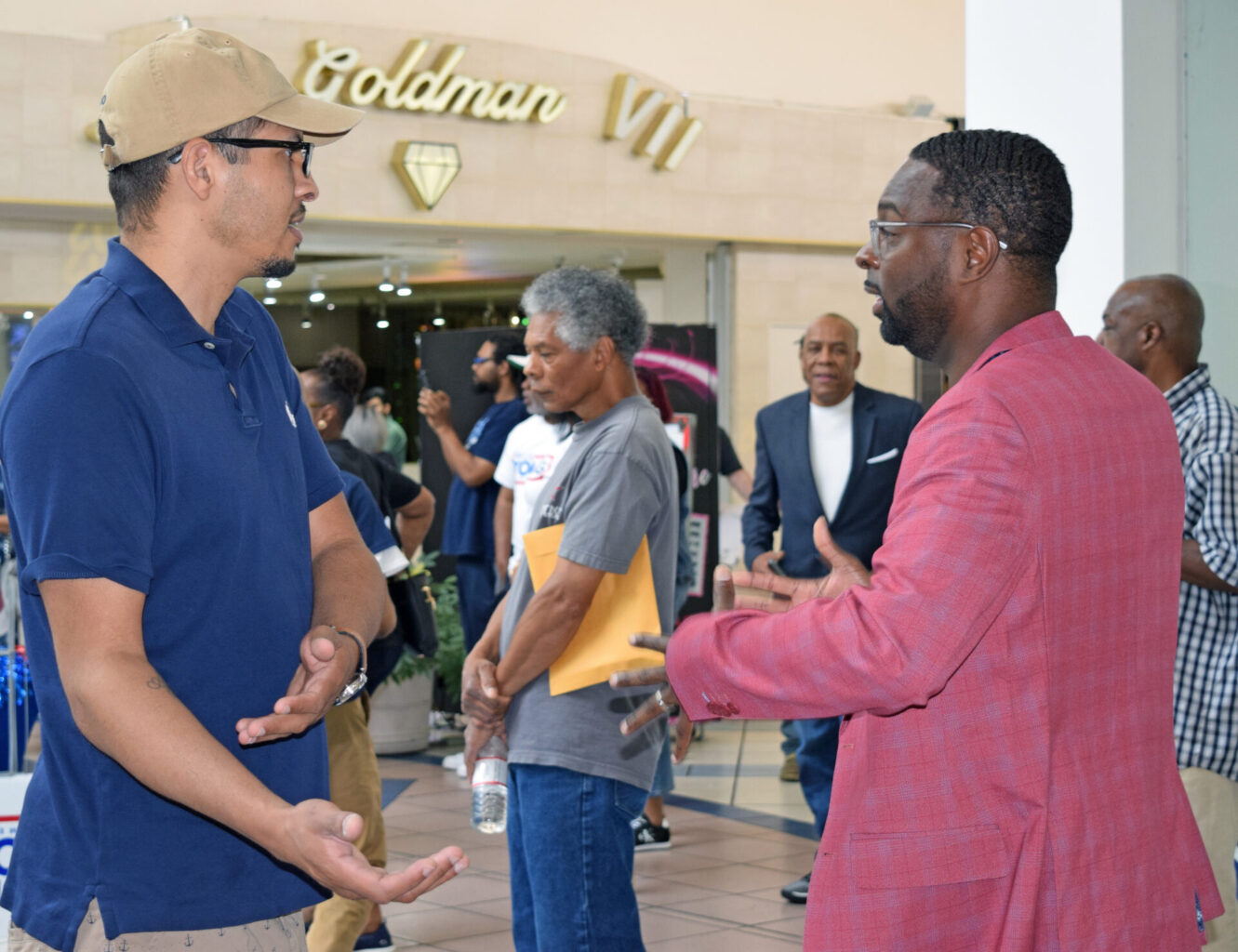
Intervention/prevention is the other key element, Young said.
“For far too long we have had a pipeline in our community. You arrest someone and it’s the next man up. … If someone picks up a gun and say they want to go rob somebody, I don’t care how many police officers we have, somebody is going to get robbed because we didn’t get to their minds before they picked up that gun.”
With so many systems – school systems, courts, truancy court, MPD, juvenile court – touching young people, “we know who the young people are,” said Young.
“Why aren’t we interjecting some opportunities in their lives? We can’t ask them to put the guns down without putting something else in their hands. That’s what’s happened for far too long in our communities.”
As mayor, he would make sure there is investment in community-based programs “that are actually on the ground supporting the young people every day. There are people out there doing the work for free. … Imagine if we had city dollars, they could scale up their operations so that they could touch more young people.
“We disinvested in the things that were supporting our young people across the community and we wonder why they are going crazy. We’ve got to think differently. We’ve got to move differently,” he said.
“I’m the leader that is going to convene the players. … The mayor doesn’t control all those systems that I talked about, but the mayor has to bring them to the table.”
More meet-and-greet sessions are planned ahead of the Memphis People’s Convention July 13-15.
Later, as the four candidates interacted with those on hand, Fisher said he appreciated a recent mayoral poll “because it identified that about half of the voters are still undecided. That’s what I believe makes these events all the more valuable because it provides people an opportunity to get direct contact with people who are asking for their vote and possibly get the information that can move them from undecided to decided.”
Stand for Children, a nonprofit, and HIT Strategies conducted the poll, which showed that 48 percent of voters were undecided about a mayoral selection.
According to the poll, former Mayor Dr. Willie W. Herenton was the choice of 13 percent of those quizzed with Turner and Sheriff Floyd Bonner Jr. tallying 9 percent and Young with 8 percent. The poll had a 4.9 percent margin of error and showed no other candidate with more than 5 percent of the vote.
Fisher said the poll results don’t reflect anything for any candidate to “celebrate or run a victory lap about, especially knowing how low overall turnout has been over the last couple of years…. What we hope to do is get the overall turnout up and we think we can do that by giving people access to more information.”
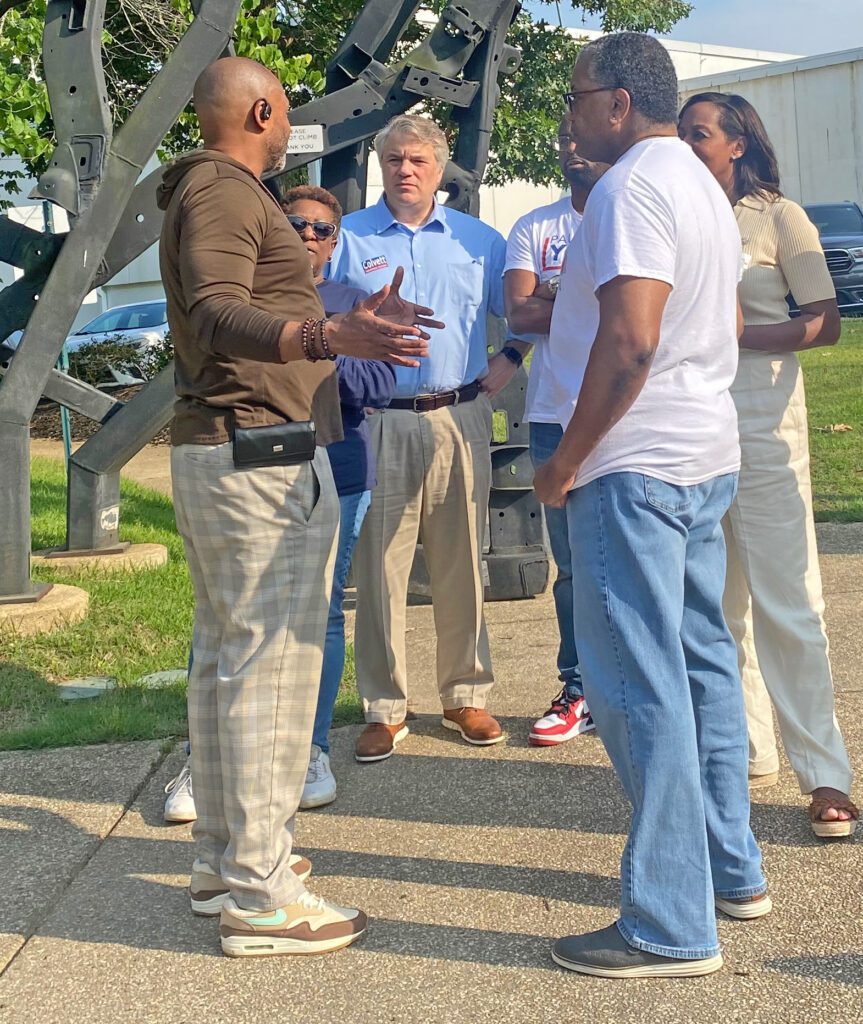
Neither Herenton nor Bonner have attended any of the meet-and-greet sessions.
“If the strategy is you don’t have to come to things like these,” said Fisher, “I think people need to know that is your rationale and we can judge accordingly.”



